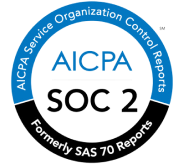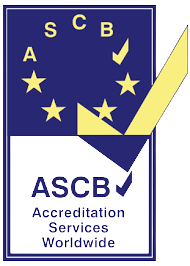Table of Content
- Introduction
- Understanding Unconscious Bias
- Types of Unconscious Bias
- Impact of Unconscious Bias in the Workplace
- Recognizing Unconscious Bias
- Addressing Unconscious Bias
- Measuring Progress and Accountability
- Conclusion
- FAQs
- 1. What is unconscious bias, and how does it manifest in the workplace?
- 2. How does HR technology help in mitigating unconscious bias?
- 3. Why is diversity and inclusion training important in addressing unconscious bias?
- 4. What are some additional strategies, aside from HR tech, for addressing unconscious bias?
Introduction
Unconscious bias in the workplace refers to the subconscious attitudes, stereotypes, and preferences that influence our judgments and decision-making processes. These biases can be based on multiple factors, such as race, gender, age, and other characteristics, and often operate outside of our conscious awareness.
Unconscious bias in the workplace can have far-reaching effects on hiring, promotions, performance evaluations, and overall organisational culture. This guide provides a thorough exploration of unconscious bias, its impact in the workplace, and strategies for addressing and mitigating its effects.
You will also learn how to reduce and negate the bias with the help of a smart HRMS platform in India. That way, you can make better decisions to make your workplace streamlined and free from bias for every talent that works for your company.
Want to skip the content?

Understanding Unconscious Bias
Unconscious bias stems from our brain's natural tendency to categorise information quickly. While this cognitive shortcut is useful in certain situations, it can lead to inaccurate and unfair judgments when applied to people. Understanding the nature of unconscious bias is crucial for creating an inclusive, diversified and equitable work environment.
Types of Unconscious Bias
Unconscious bias can manifest in various forms, including affinity bias (favouring individuals similar to oneself), confirmation bias (seeking information that confirms pre-existing beliefs), and halo effect (generalising positive traits from one area to another). Recognizing these patterns is essential for addressing them effectively.
Impact of Unconscious Bias in the Workplace
Unconscious bias can lead to unequal opportunities, reduced diversity, and a less inclusive work environment. Understanding these consequences is crucial for organisations to foster a fair and inclusive workplace.
Recognizing Unconscious Bias
Identifying unconscious bias requires self-awareness and education. It involves acknowledging our own biases and understanding how they may influence our decisions. Training programs and workshops can be effective tools for raising awareness and promoting a more inclusive workplace culture.
Addressing Unconscious Bias
Harnessing HRMS software technology is pivotal in addressing unconscious bias, as it provides objective tools and processes to mitigate its effects. Here are seven HR tech-related strategies to tackle unconscious bias:
- Blind Recruitment Platforms:
Utilise blind recruitment platforms or tools that anonymise candidate information, removing potentially bias-inducing factors like names, photos, and personal details. This ensures that candidates are evaluated solely based on their qualifications and skills.
- AI-Powered Resume Screening:
Implement AI-driven tools like CV Parser provided by uKnowva HRMS for resume screening that analyse qualifications and experience without revealing demographic information. These systems use algorithms to match candidate profiles with job requirements, reducing the potential for bias in the initial selection process.
- Diversity Analytics Tools:
Leverage HR tech solutions that provide diversity analytics related to the workforce you hire during a tenure in your organisation. These tools offer insights into workforce demographics, helping organisations track and measure progress in building a more diverse and inclusive workforce.
- Structured Interviewing Software:
Adopt structured interviewing software that standardised the interview process with predefined questions and evaluation criteria. This minimises the influence of unconscious bias by ensuring all candidates are assessed on the same criteria. You can use AI Suggest by uKnowva HRMS to give you the best interview assessment questions without bias. It takes the data from the net and provides the best set of questions to hire the best candidate for a particular job or position.
- Job Portal Analysis:
Implement tools that analyse job postings with configurations to understand the hidden bias into the hiring system or process. After removing the bias, you can then move ahead to attract a more diverse candidate pool. uKnowva lets you provide the utilisation and efficiency percentage to understand which job portal and job engine is the best to date for your company in terms of retaining the best talent out there.
- Feedback and Evaluation Platforms:
Use uKnowva HRMS software in Mumbai for performance evaluations and feedback that focus on specific, measurable criteria. Our system helps managers provide objective feedback, reducing the likelihood of subjective judgments influenced by unconscious bias.
- Diversity and Inclusion Training Software:
Utilise e-learning features like eLMS by uKnowva HRMS to raise awareness about unconscious bias, educate employees on inclusive behaviours, and provide practical strategies for mitigating bias in the workplace.
Measuring Progress and Accountability
Regularly assessing diversity metrics, conducting employee surveys, and tracking progress in addressing unconscious bias are essential steps for accountability. Establishing clear goals and holding leadership accountable for fostering an inclusive workplace reinforces commitment to change.
Conclusion
Recognising and addressing unconscious bias is a moral approach for driving strategic advantages for organisations. By creating an inclusive workplace where diverse perspectives are valued and everyone has an equal opportunity to succeed, businesses can tap into a broader talent pool, drive innovation, and foster a positive organisational culture. Through ongoing education, awareness-building, and proactive measures, organisations can actively combat unconscious bias and work towards a more equitable and thriving workplace for all.
FAQs
1. What is unconscious bias, and how does it manifest in the workplace?
Unconscious bias refers to automatic, unintentional attitudes or stereotypes that influence decision-making. In the workplace, it can manifest in hiring, promotions, evaluations, and interactions based on factors like race, gender, or other characteristics.
2. How does HR technology help in mitigating unconscious bias?
HR technology like uKnowva HRMS offers objective tools and processes to reduce the impact of unconscious bias in hiring and talent management. It includes solutions like blind recruitment platforms, AI-powered resume screening, and structured interview software.
3. Why is diversity and inclusion training important in addressing unconscious bias?
Diversity and inclusion training raise awareness about unconscious bias, educate employees on inclusive behaviours, and provide practical strategies for mitigating bias. It helps create a more inclusive workplace where diverse perspectives are valued.
4. What are some additional strategies, aside from HR tech, for addressing unconscious bias?
In addition to HR tech solutions like uKnowva, organisations can implement strategies like inclusive leadership training, mentorship programs, and creating diverse hiring panels. Building a culture of open, honest, and reliable communication and accountability is also essential in addressing unconscious bias.












